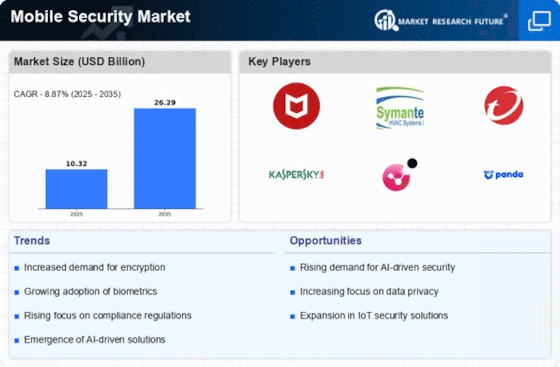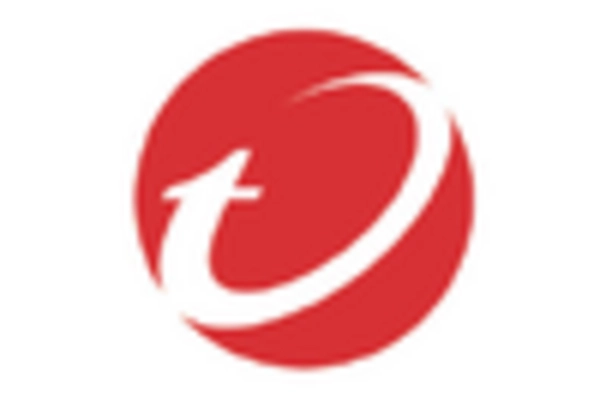Market Share
Mobile Security Market Share Analysis
The Mobile Security Market which is a rapidly growing environment is highly competitive, as companies try to get a big slice of the market share. In this high-stakes environment, market-targeting strategies play a critical role in determining the fortunes of an organization. One of the major tactics is separation that differentiates organizations based on the unique aspects or services they provide to stand out from competitors. For instance, some mobile security providers emphasize state-of-the-art risk detection algorithms, others prioritize user-friendly design. The process here means taking care of every customer's needs and inclinations which allows companies to get a niche in the market.
The other key road is cost management in which organizations aim to become the low cost supplier in the market. Continuing to improve productivity, cycle smoothing and practical arrangements is done without compromising the quality of security services. Delicate clients might find cheap suppliers attractive, in markets where the budgets determine the shopping decisions. In the end, ensuring cost management without compromising security standards is a thin line to balance because customers will always target the efficiency of mobile security solutions.
Part of marketing positioning in the Mobile Security Market is market segmentation. Organizations naturally move on explicit groups of clients in consideration of factors like industry, the size of the company or the location. Through aligning their strengths with the intriguing needs of these aspects, companies can gain an edge over the competition. For example, a mobile security provider may specialize in solutions tailored for small to midsize business or focus on sectors with stringent regulatory requirements of their own, such as financial or healthcare.
With coordination and organizations, cooperative market share is composed. In the rapidly developing mechanical field, industries usually combine their power by using common approaches. This could be through mobile security integration with other cybersecurity instruments or through partnering with broadcast services providers to increase the range and availability of their services. Therefore, through essential unions, organizations can attain new markets, assets, and more profound deals arrangements, hence they become more potent in the Mobile security market.
Flexibility as well as development are vital elements in a mobile market while positioning in the Mobile Security Market. The constant enhancement of mobile risks means the need for nimbleness in dealing with emerging problems. Businesses that devote time and money to new options to stay ahead can position themselves as industry leaders.



















Leave a Comment